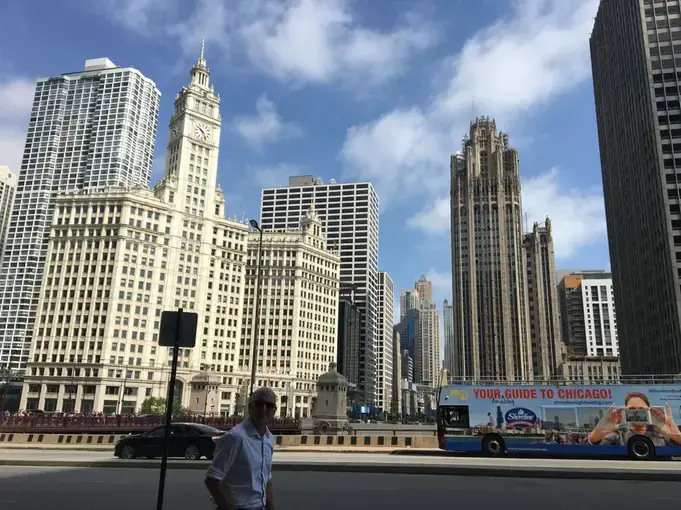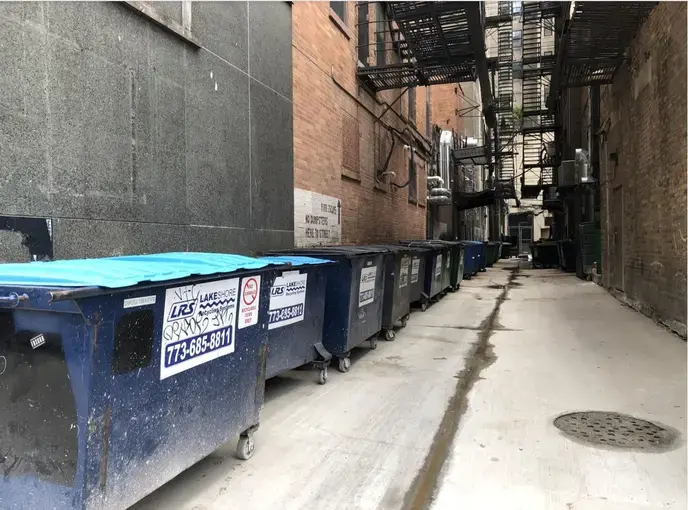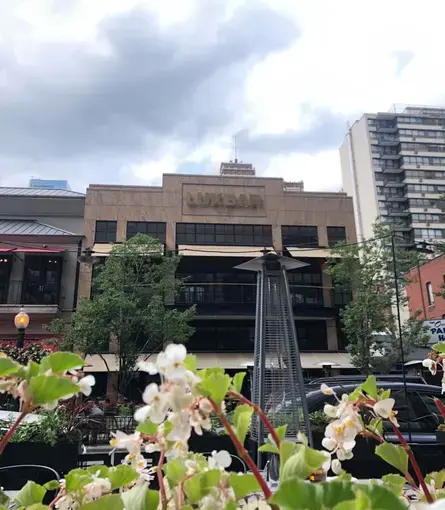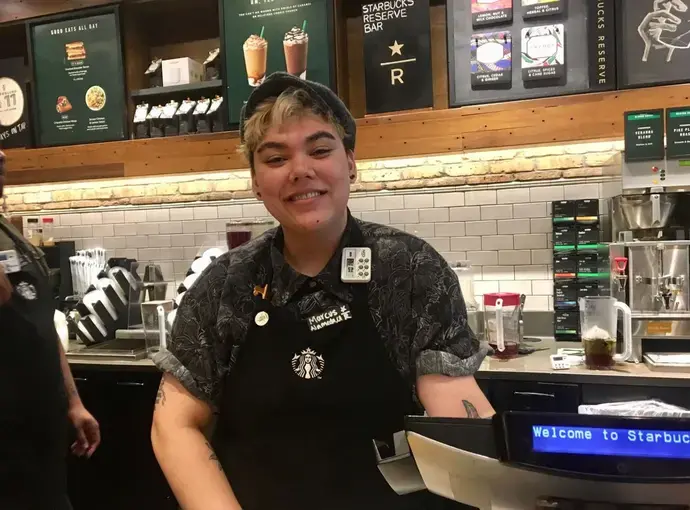Food Waste
By Eisha and Andrea Salem
Students in the 2019 Genesis Academy Summer Institute in Chicago

Image by Eisha and Andrea Salem. United States, 2019.
Food is an essential that is difficult to come by for some and assured for others. Those who are privileged enough to have excess food often choose to throw it away without thinking about the needy. This is called food waste, which is essentially food that is discarded or lost, uneaten. According to the Medill Reports Chicago, the city wastes 55 million wet tons of food a month. According to the Chicago Coalition of the Homeless, over 80,000 people are considered homeless in the big city of Chicago. It is safe to assume that many of them go to sleep hungry. Moreover, 7% of global greenhouse gas emissions come from food thrown away according to Chicago Council on Global Affairs. Because of the many problems caused by food waste, we think that solutions need to be suggested and applied. Is that possible?

Image by Eisha and Andrea Salem. United States, 2019.
We hit the streets of Chicago to ask various stakeholders about their opinions on food waste, its implications, and how it can be handled. The deeper we dug, the more multi-dimensional the issue became. At first glance it may seem like a simple problem to solve, but there are numerous barriers in place. According to Luxbar's general manager Eric Starke, the restaurant tries to reduce waste by employing numerous methods such as using the same items for multiple recipes and feeding their employees three meals a day. Starke mentions "There are a lot of laws about food that comes from restaurants going to homeless shelters so it is very difficult to manage that...due to the legalities involved."

Image by Eisha and Andrea Salem. United States, 2019.
However, despite the fear of potentially being sued, many restaurants and cafes continue to help the needy population by donating excess food. One such example is that of the famous coffee shop called Starbucks. Starbucks employee Marcus Dalton stated, "At the end of the night sandwiches, salads, protein bars and fresh foods...are donated to the Greater Chicago Food Depository." The Greater Chicago Food Depository is a food bank which picks up food from different locations and provides it to the hungry people. Such initiatives are a beacon of light in the dark lives of those who struggle to fulfil their basic needs.

Image by Eisha and Andrea Salem. United States, 2019.
To look at the other side of the picture, we interviewed George Norman, a homeless man in Chicago. His point was that even though he is homeless if he had some food that he does not like, he tries to give it to people along the way, since he doesn't like to waste food. "People don't ask me what I like or what I need… If I get stuff that I don't like I try not to trash it, instead I try to give it to people on the way." In this interview, we notice how people accept the food and share with others without the need of a big organization. However, Norman also mentioned how there are homeless people who search through trash cans for edible food waste.
There are certain restaurants, cafes and grocery stores like Starbucks who make an effort to collaborate with local organizations to decrease food waste, and help the community. However, there is still a great need for the majority to do the same. We believe efforts are required from all sides: the restaurants and their practices, the government and the laws in practice, and local organisations in order for the issue to be solved effectively.
Bibliography:
Chicagoans Waste 55 Million Pounds of Food Each Month
In Chicago's Epic Freeze, Some Homeless Feel More Comfortable Outdoors
A Huge Amount of Food Is Wasted—and with It, Water, Energy, and Nutrition